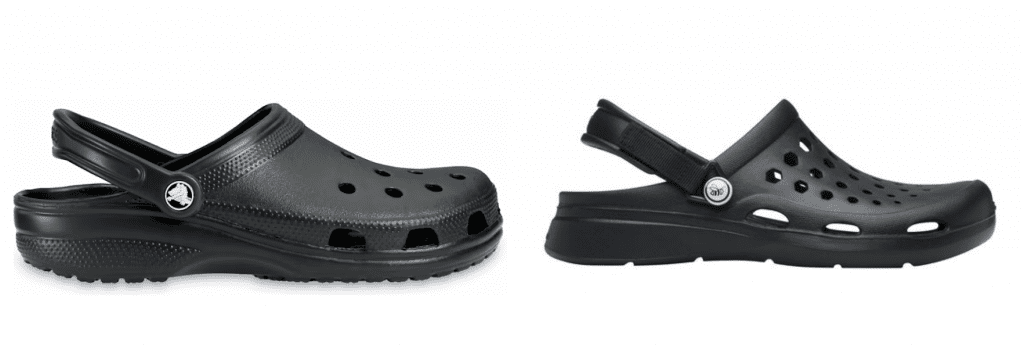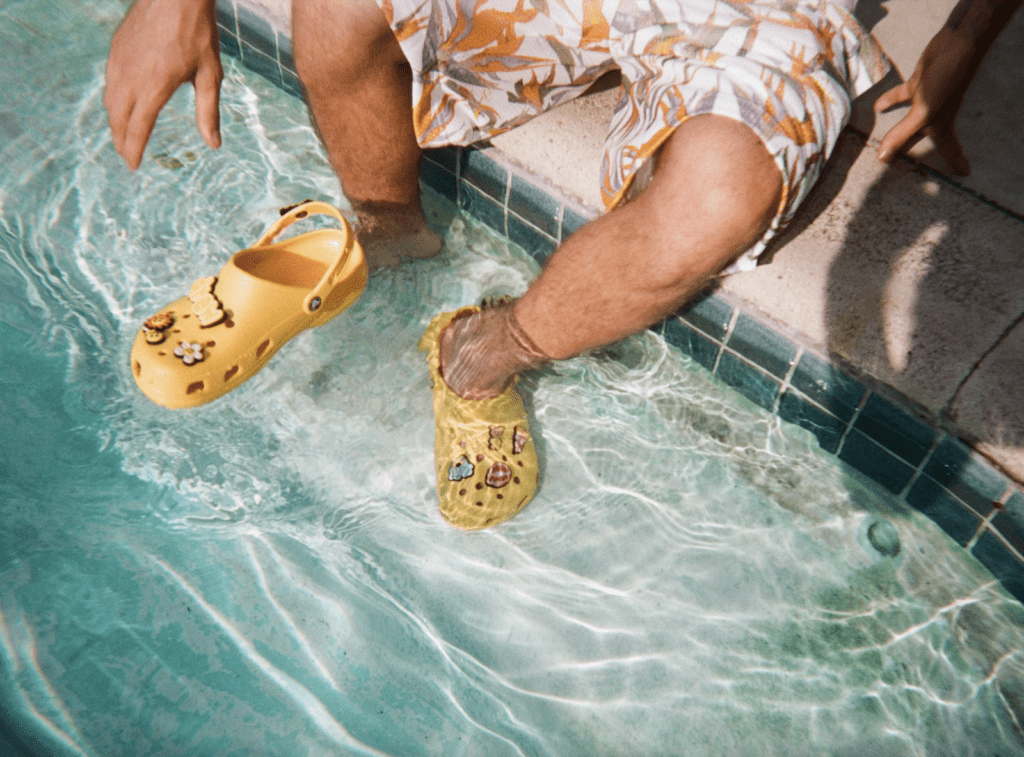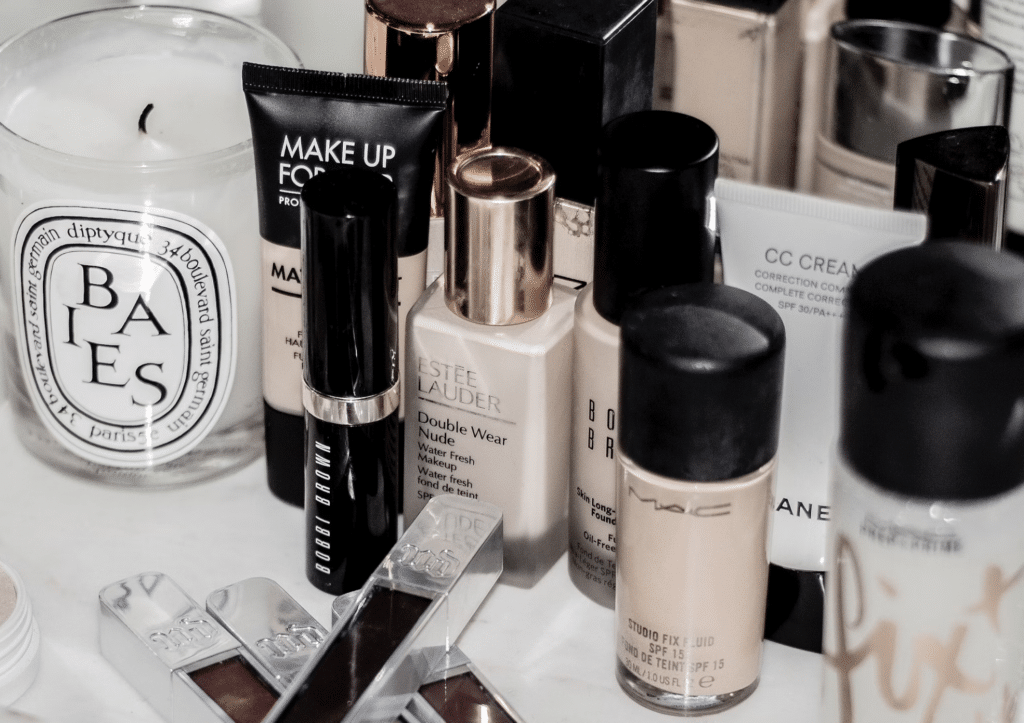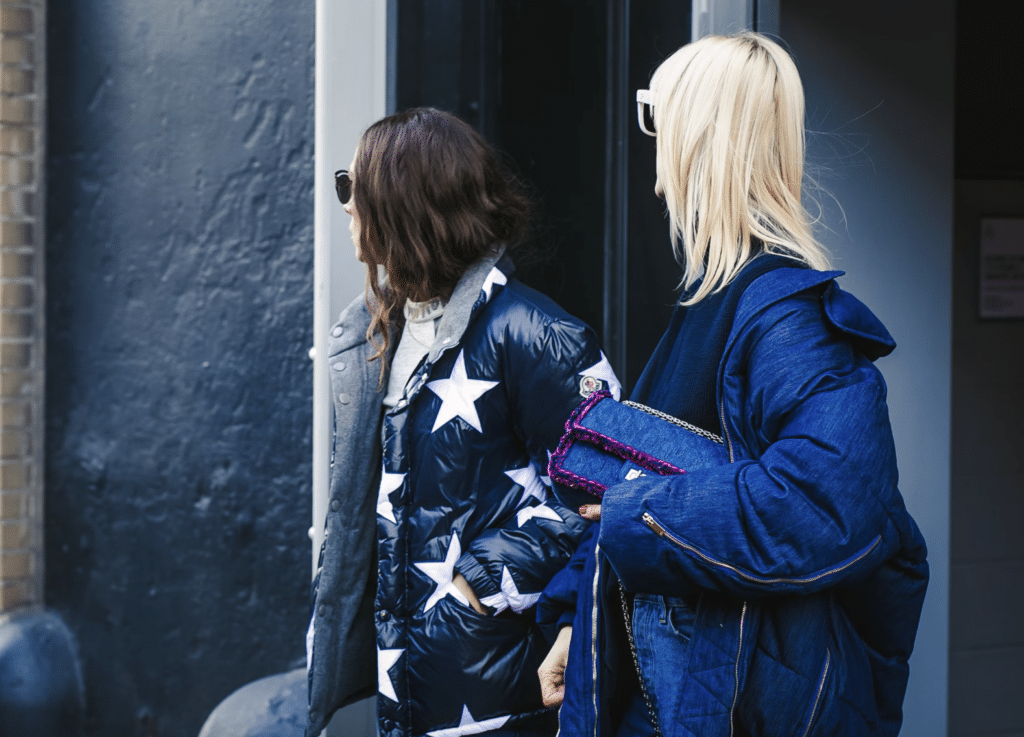Crocs is waging a new trade secret lawsuit and in the process, it is adding another layer to a larger legal battle with a former employee who allegedly jumped ship to start a rival footwear company. According to the complaint that it filed in a Colorado federal court on July 6, Crocs claims that Kellen McCarvel is on the hook for the “misappropriation and use of [its] trade secrets and other proprietary and highly confidential business information that [he has] used without authorization to develop, manufacture, and market footwear products for the knockoff brand Joybees.” Both McCarvel and Joybees LLC are named as defendants in the new lawsuit.
Setting the stage in its complaint, Crocs claims that until 2018, McCarvel held a “midlevel management position” at Crocs, at which point he left to launch Joybees, bringing with him “a tranche of several thousand documents containing Crocs’s highly confidential and proprietary business information, as well as the contents of an entire Crocs email account that McCarvel has never returned to Crocs.” McCarvel “stole those documents and emails by downloading them onto a personal USB drive from a folder on his laptop he aptly named, ‘Take,’ which he then took when leaving Crocs the next day,” the company alleges. He then “used the stolen documents to build a rival shoe company, Joybees, to compete against [it].”
A Couple of Crocs Lawsuits
For a bit of background: This is not the first lawsuit to pit the parties against one another: Crocs first filed suit against McCarvel and Joybees (the “defendants”) in October 2021 as a result of McCarvel’s alleged breach of contract and the theft of Crocs’s trade secrets. Additionally, Crocs has alleged that the defendants engaged in unfair competition and trademark infringement, as they made use of the Crocs trademark “to promote and position” the Joybees brand. That case is still underway before the U.S. District Court for the District of Colorado.
Crocs maintains that its new lawsuit centers on “additional forms of theft and misappropriation separate and apart from McCarvel’s original theft.” Specifically, Crocs claims that the newly-filed case “focuses on the solicitation, disclosure, receipt, and use of … the specifications, standards and test and audit methods that dictate the quality and performance of the shoe material and various other components that are used to make Crocs footwear, as well as standards that manufacturers of Crocs footwear must adhere to.”

The defendants allegedly misappropriated this information from Crocs in order to “skip the years-long research and development process needed to independently develop high-quality material specifications and quality standards for Joybees.” As for how they did so, Crocs contends that McCarvel and others working on behalf of Joybees “solicited and hired the help of former and current Crocs employees and agents,” including a former Crocs Quality Engineer, former Crocs Director of Manufacturing, and former Crocs Operations Manager “with the aim of making Joybees footwear according to the same proprietary material specifications, component specifications and other quality standards and related test methods that Crocs uses for Crocs footwear.”
“Each of the former and current Crocs employees and agents solicited by [the defendants] had access to, or knew information about, Crocs’s specifications, quality standards, and test methods” – which amount to “highly sensitive and valuable” information – and Crocs claims that several individuals “divulged whole libraries of documents containing [its] trade secrets and proprietary information.”
TLDR: Crocs claims that McCarvel and Joybees are looking to “piggyback off of the success of the Crocs brand by unfair and illegal means,” including a scheme of trade secret misappropriation and solicitation.
As a result of such alleged misappropriation, Crocs asserts that Joybees “was able to accomplish in just a few months what had taken Crocs nearly a decade of research, development, and experience,” thereby giving Joybees “a significant competitive advantage that [it] did not earn and would not have enjoyed otherwise.” With the foregoing in mind, Crocs sets out claims of trade secret misappropriation under the Defend Trade Secrets Act and the Colorado Uniform Trade Secrets Act, civil theft of proprietary information, conversion, unjust enrichment, tortious interference with a business relationship or prospective business relationship, and breach of contract, and is seeking monetary damages and injunctive relief.
Competing With Crocs
All the while, McCarvel and Joybees claim that Crocs is engaging in “a systematic, widespread campaign to eliminate competition in the casual footwear market through unfounded or overly broad legal actions rather than competitive means.” In an answer and counterclaims that it filed in response to Crocs’ amended complaint in the earlier action, McCarvel and Joybees allege that Crocs is “using its economic power with the specific intent to unlawfully monopolize the United States market for injection-molded clogs including by intimidating Joybees’ retailers and retailer prospects into terminating their business relationships with Joybees or otherwise refusing to deal with Joybees Retailers in an effort to exclude Joybees from the market.”
Joyees asserts that in 2022, alone, “at least eighteen” of its retailers terminated their business relationship with it and thereafter, began selling Crocs products, “suggesting that Crocs’s product is so essential that certain retailers will forego business with Crocs’s competitors to keep Crocs’s business.”
In response to that case, McCarvel and Joybees have set out claims of their own, seeking declarations from the court that its footwear does not infringe or dilute Crocs’ registrations for the configuration of its clog (including Reg. Nos. 5,149,328 and 5,273,875). They are also seeking declarations of invalidity on the bases of functionality and lack of secondary meaning. Beyond that, they have also sought declaratory judgments of non-infringement and invalidity in connection with a handful of patents that Crocs has for its clog design (Patent Nos. D632,465 S; D517,789; 7,146,751 B2; and 6,993,858 B2).
Looking beyond their trademark and patent-centric counterclaims, McCarvel and Joybees also claim that Crocs has violated section 2 of the Sherman Act and Colorado Antitrust Act by way of its efforts to “engage in a concerted effort to exclude its competitors, including Joybees, from the relevant markets … and entrench its own monopoly in order to extract monopoly profits.”
The case is Crocs, Inc. v. Joybees, Inc., et al., 1:23-cv-01719 (D. Col.).













